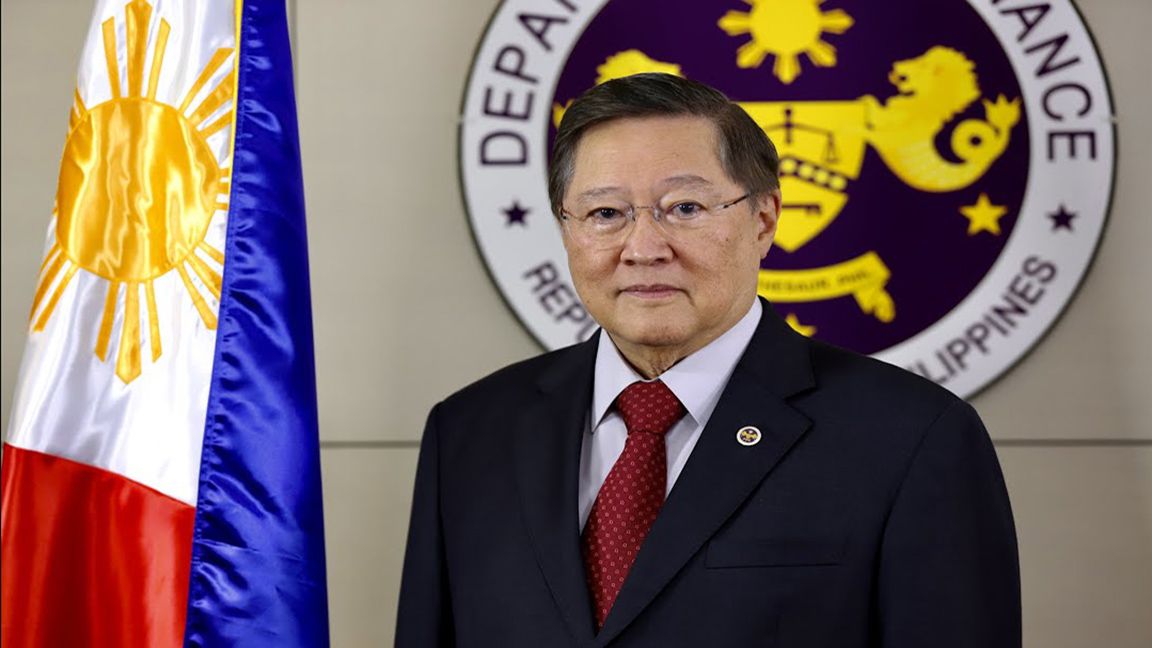THE Department of Finance (DoF) is a run-away shop.
Secretary Carlos Dominguez III is packing up things ready to exit the “house” leaving a pile of the economic problems behind his back.
Dominguez, who leads Duterte's economic team, confessed that the country is dealing with a rising domestic debt, greater inflation, a widening gap between rich and poor, and climate change, all of which have persisted under his watch.
The government has amassed a total of P10.4 trillion in debt last February.
Currently, there is P11.73 trillion in outstanding debt, which is likely to rise to P13.42 by end of 2021.
By the end of 2022, the number will inch up by 4.2 percent as projected.
All these years, Dominguez has been emphasizing the importance of borrowing from outside sources to support the government programs and respond to public health demands during the pandemic.
Challenge
The challenge, however, is how we will pay these debts, given that the economy shrunk during the pandemic, resulting in reduced gross domestic product (GDP) output.
As it is, the country's GDP fell by 4.2 percent in the first quarter of 2021.
To meet the expected 7% growth rate by the end of 2021, the economy must grow at an average of 10.8% in the last three quarters.
Economic analysts and observers believe the country will not be able to achieve a 10.8% growth rate while still suffering from the effects of Covid19 limitations.
The Development Budget Coordination Committee (DBCC) forecasted a 6 to 7.5 percent growth rate for 2021 at the midpoint.
Inflation rate
Prices have continued to rise as the economy attempts to recover from the effects of the pandemic.
Food and non-alcoholic beverages, fruits, and seafood prices climbed the most.
Inflation in food increased from 1.8 percent in the entire year of 2020 to 5.4 percent in September 2021. The prices of basic commodities and services rise as jobs and incomes fall
The administration downplayed the large reduction in employment and unemployment in September, which hit an all-time high of 8.9% (4.3 million jobless Filipinos), the highest among Asia's growing economies.
Disproportionately distributed
Average salaries have been rising in recent years prior to the pandemic.
However, the benefits of growth are disproportionately distributed among a few number of people at the top, while the majority of people remain impoverished and fall further behind.
According to an economic think tank, the top 143, 000 families (the richest 6% of the population) own P20-25 trillion, or 40% of the country's wealth and more than the bottom 80% combined.
The country's ten wealthiest Filipinos are estimated to be worth between P108 billion and P811 billion each.
Dominguez made no mention of the impending energy catastrophe that would occur once our local power generators switch to green alternative fuels to supply electricity.
To reduce global warming, the COP26 climate change meeting in Glasgow moved to phase out fossil fuels, particularly coal. Dominguez represented the country at the Glasgow summit.
On the other hand, it is possible that the Secretary is implying that the government is less prepared to deal with the negative effects of climate change.
The implementation of the Corporate Recovery and Tax Incentives for Enterprises (CREATE) law exclusively benefited the wealthy and those with higher income levels.
The poor would continue to be battered by the worst of increasing taxes through indirect taxation, such as an increase in the oil excise tax, under the new tax system (the TRAIN Law).
While all of these are happening, Dominguez's refusal to tax the rich only confirms his anti-poor and pro-rich policies.
The CREATE Law is a revenue-losing measure that is completely ineffective when funds are desperately needed during a pandemic.
Foregone revenues of P251 billion (P133. 2 billion in 2020 and P117. 6 billion in 2021) that could have been used for cash subsidies (no need for foreign loans).
The bill reduced the income base, putting the government's finances at risk, and it failed to attract foreign investment.
The CREATE Law is one stupid measure by Dominguez as finance secretary.
The Department of Finance is now working on a "playbook" of fiscal consolidation options, which could include new or higher taxes that the next administration could use to raise income.
Multiple solutions are required to rebuild the economy, as the economic managers correctly point out.
According to a group of economic think tanks, they are blind to the most socially and economically essential metric of genuine expansionary fiscal policy.
Tags: #DOF, #FinanceSecretaryDominguez, #economy, #inflation, #taxes
